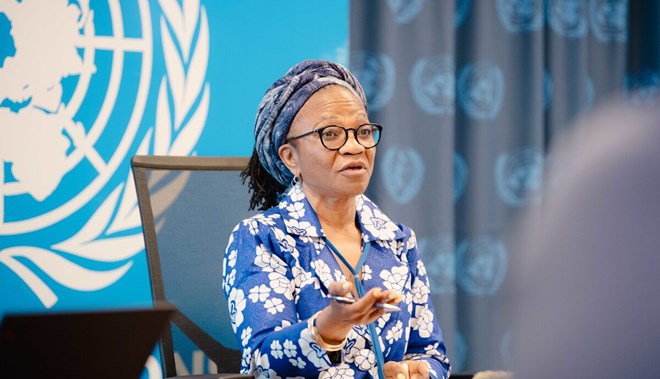MOGADISHU, Somalia – The National Union of Somali Journalists (NUSOJ) has applauded the United Nations’ call for Somalia’s proposed Official Information Bill (OIB) to align with international human rights standards.
In her address to the 57th Session of the UN Human Rights Council, Ms. Isha Dyfan, UN Independent Expert on the Situation of Human Rights in Somalia, described the OIB—currently under consideration—as a promising development.
Ms. Dyfan urged the Federal Government of Somalia to ensure that the Bill adheres to international human rights standards, emphasizing the need for all Somali citizens to access information held by public institutions. She cautioned against overly broad provisions that could undermine the Law’s objectives.
“While the Official Information Bill can be seen as a positive step, I call upon the Federal Government to ensure that it fully aligns with international human rights standards. It is essential that the Bill effectively provides all Somali citizens access to information held by public institutions, without overly broad provisions that could hinder its objectives,” Dyfan said.
After advocating for the renewal of the UN Independent Expert’s mandate, NUSOJ welcomed the unanimous adoption of Draft Resolution A/HRC/57/L.15, which focuses on providing assistance to Somalia in the realm of human rights.
NUSOJ has joined international voices expressing serious concerns about the proposed OIB, cautioning that it poses a significant threat to Somalia’s democratic foundations. The bill, which the Council of Ministers approved in March 2024, is now awaiting endorsement in the Federal Parliament.
The legislation has drawn international criticism for its potential to restrict access to information, a right enshrined in Somalia’s constitution and international human rights standards. Its broad exemptions could allow the government to classify information as confidential or related to national security, potentially lacking sufficient oversight or justification.
A coalition of organizations, including the International Federation of Journalists (IFJ), Reporters Without Borders (RSF), and the African Freedom of Information Centre (AFIC), is urging the Somali government to retract the bill. They call for a thorough and inclusive review process that engages all stakeholders, ensuring the legislation champions transparency and aligns with the African Union Model Law on Access to Information.
The bill’s clandestine drafting, conducted without public or stakeholder consultations, has drawn sharp criticism. This approach undermines its legitimacy and threatens to foster a culture of secrecy within Somalia’s public sector, potentially paving the way for corruption.
The approval of the OIB could pose a serious challenge for Somalia, jeopardizing advancements in open governance and accountability. In response, the international community and local civil society organizations are intensifying efforts to pressure the government, emphasizing the bill’s potential repercussions for human rights and governance in the country.
The Federal Government of Somalia has yet to respond to mounting criticisms. This pivotal moment has sparked widespread calls for legislation that truly promotes the free flow of information and protects citizens’ rights. NUSOJ is at the forefront of this struggle, actively mobilizing alongside civil society and international organizations to ensure that any proposed laws align with democratic principles and human rights standards.






